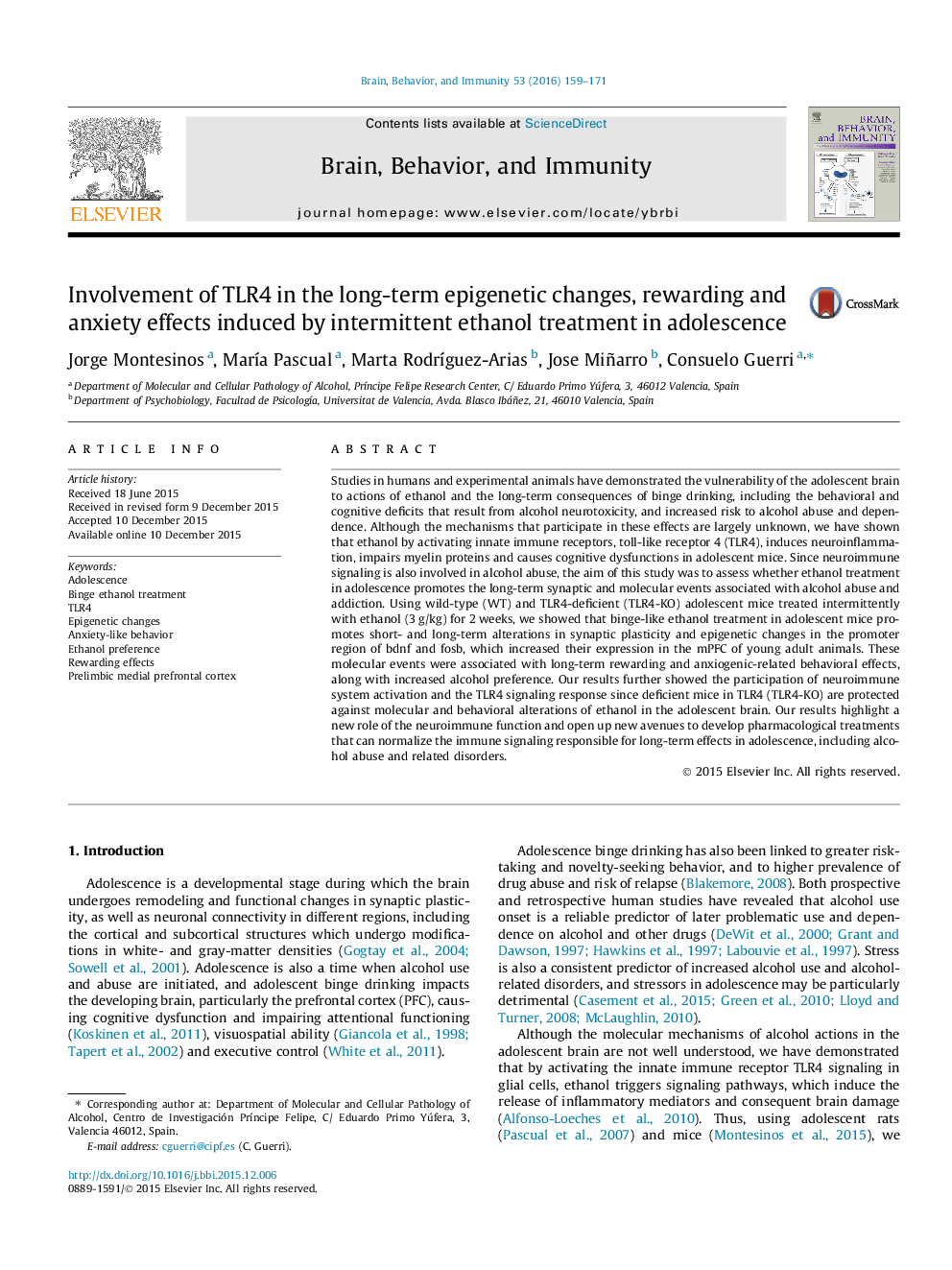| کد مقاله | کد نشریه | سال انتشار | مقاله انگلیسی | نسخه تمام متن |
|---|---|---|---|---|
| 922088 | 1473914 | 2016 | 13 صفحه PDF | دانلود رایگان |
• TLR4 participates in ethanol-induced long-term aberrant synaptic remodeling in the adolescence.
• TLR4 is involved in ethanol-induced epigenetic changes in the adolescence.
• TLR4 participates in ethanol-induced long-term rewarding and anxiety effects in the adolescence.
Studies in humans and experimental animals have demonstrated the vulnerability of the adolescent brain to actions of ethanol and the long-term consequences of binge drinking, including the behavioral and cognitive deficits that result from alcohol neurotoxicity, and increased risk to alcohol abuse and dependence. Although the mechanisms that participate in these effects are largely unknown, we have shown that ethanol by activating innate immune receptors, toll-like receptor 4 (TLR4), induces neuroinflammation, impairs myelin proteins and causes cognitive dysfunctions in adolescent mice. Since neuroimmune signaling is also involved in alcohol abuse, the aim of this study was to assess whether ethanol treatment in adolescence promotes the long-term synaptic and molecular events associated with alcohol abuse and addiction. Using wild-type (WT) and TLR4-deficient (TLR4-KO) adolescent mice treated intermittently with ethanol (3 g/kg) for 2 weeks, we showed that binge-like ethanol treatment in adolescent mice promotes short- and long-term alterations in synaptic plasticity and epigenetic changes in the promoter region of bdnf and fosb, which increased their expression in the mPFC of young adult animals. These molecular events were associated with long-term rewarding and anxiogenic-related behavioral effects, along with increased alcohol preference. Our results further showed the participation of neuroimmune system activation and the TLR4 signaling response since deficient mice in TLR4 (TLR4-KO) are protected against molecular and behavioral alterations of ethanol in the adolescent brain. Our results highlight a new role of the neuroimmune function and open up new avenues to develop pharmacological treatments that can normalize the immune signaling responsible for long-term effects in adolescence, including alcohol abuse and related disorders.
Journal: Brain, Behavior, and Immunity - Volume 53, March 2016, Pages 159–171
